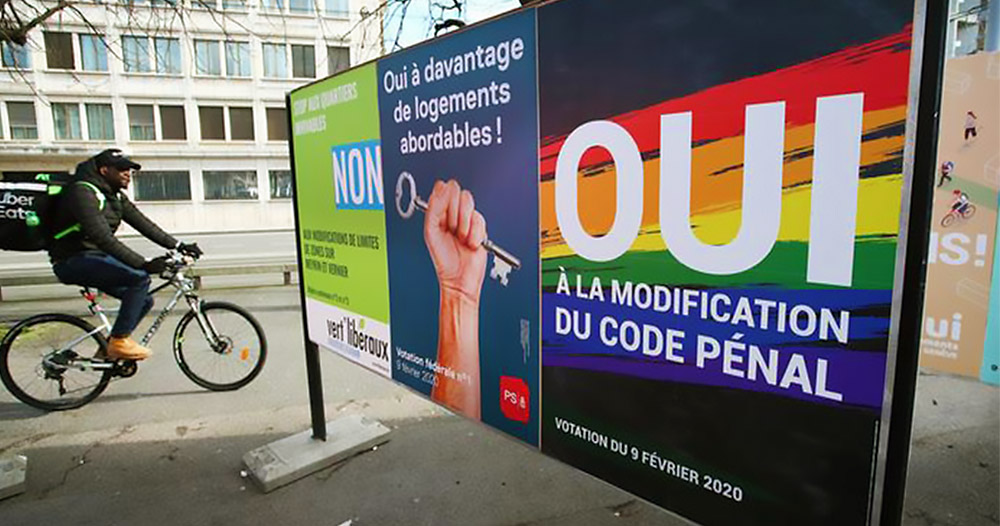Prior to the referendum, Switzerland did not have a law that protected lesbian, gay and bisexual people against discrimination. Discriminating against someone or inciting hatred against them because of their sexual orientation could not be prosecuted by law. This is unlike most Western European countries that do have laws that specifically protect LGBT+ people.
In late 2018 Switzerland’s parliament approved expanding the existing anti-discrimination laws in the country to include sexual orientation. The law includes messages posted on social media, comments made on television and discrimination against gay, lesbian and bisexual people in public places such as restaurants, cinemas and swimming pools. Violations of the law, such as homophobic comments made in public would be punishable with a maximum of 3 years in prison.
Opponents of the law argued that it violated their freedom of opinion and speech saying that they should be free to disclose their views of homosexuality in public. They gathered the required 50,000 votes needed to force a national referendum.
Politicians and experts argued against the notion that the law would stifle freedom of expression as the law does not cover arguments held in private circles. Interior Minister Alain Berset sent a message out to voters saying that jokes about gay, lesbian and bisexual people would be allowed as long “as they respect human dignity”.
Nearly two-thirds of voters supported extending Switzerland’s racism statutes to sexual orientation with a margin of 61.3% to 36.9%. The highest approval rate was in Geneva with 76.3% in favour of the change. Out of Switzerland’s 26 cantons only 3, Appenzell-Innerrhoden, Schwyz and Uri had the majority vote against the new amendment.
The nationalist Swiss People’s Party, the biggest single party in parliament currently opposed the change in the law. They are the only party in parliament that doesn’t support the new law.
Mathias Reynard, the lawmaker from the Social Democratic Party of Switzerland who initiated the reform told Swiss media that “this is a historic day” and that “it gives a signal which is magnificent for everyone and for anyone who has been a victim of discrimination”.
Currently, the new law only covers discrimination against sexual orientation but not gender identity. Gender non conforming people and transgender people are still in danger of being discriminated against.
© 2020 GCN (Gay Community News). All rights reserved.
Support GCN
GCN is a free, vital resource for Ireland’s LGBTQ+ community since 1988.
GCN is a trading name of National LGBT Federation CLG, a registered charity - Charity Number: 20034580.
GCN relies on the generous support of the community and allies to sustain the crucial work that we do. Producing GCN is costly, and, in an industry which has been hugely impacted by rising costs, we need your support to help sustain and grow this vital resource.
Supporting GCN for as little as €1.99 per month will help us continue our work as Ireland’s free, independent LGBTQ+ media.
